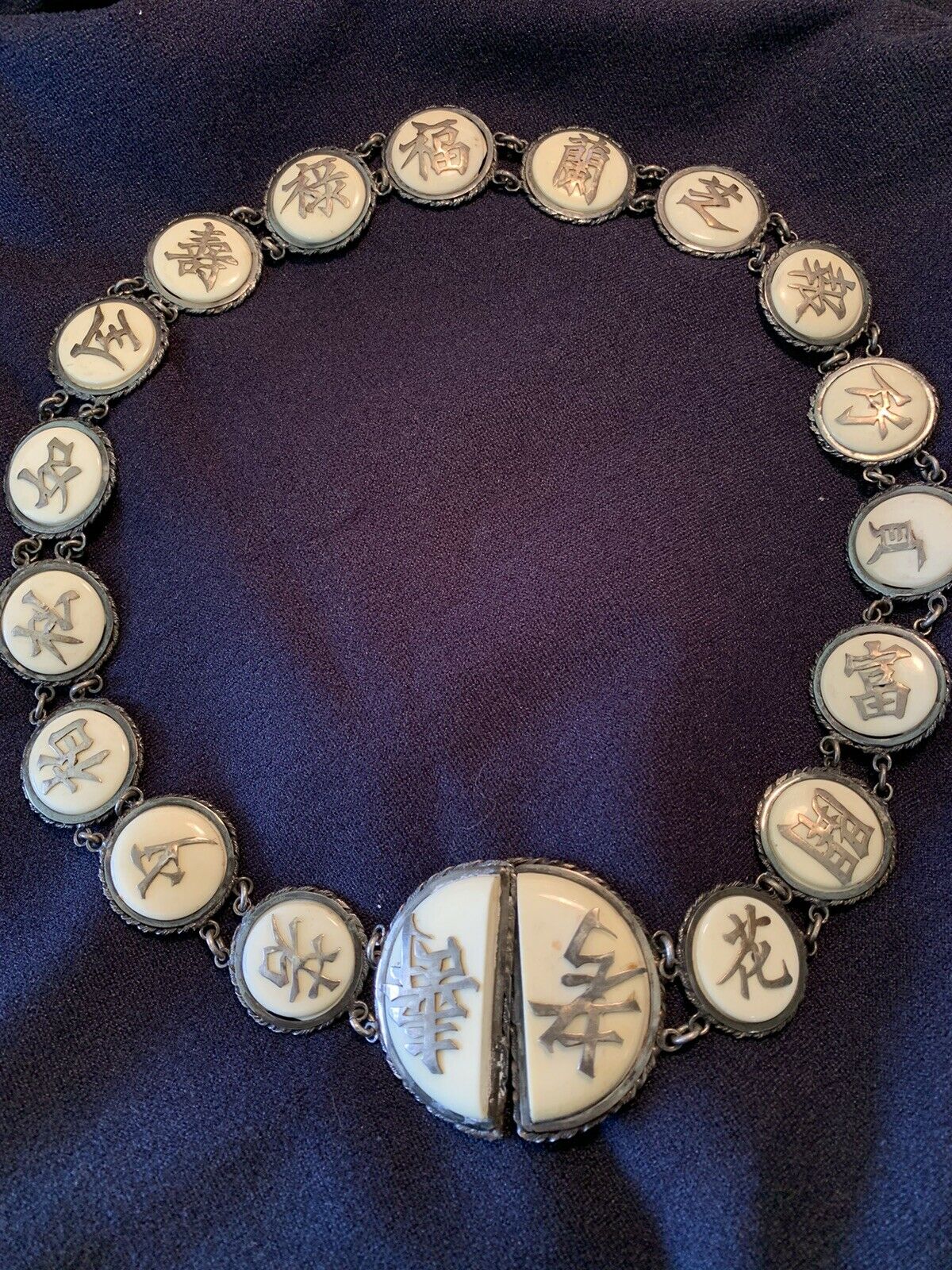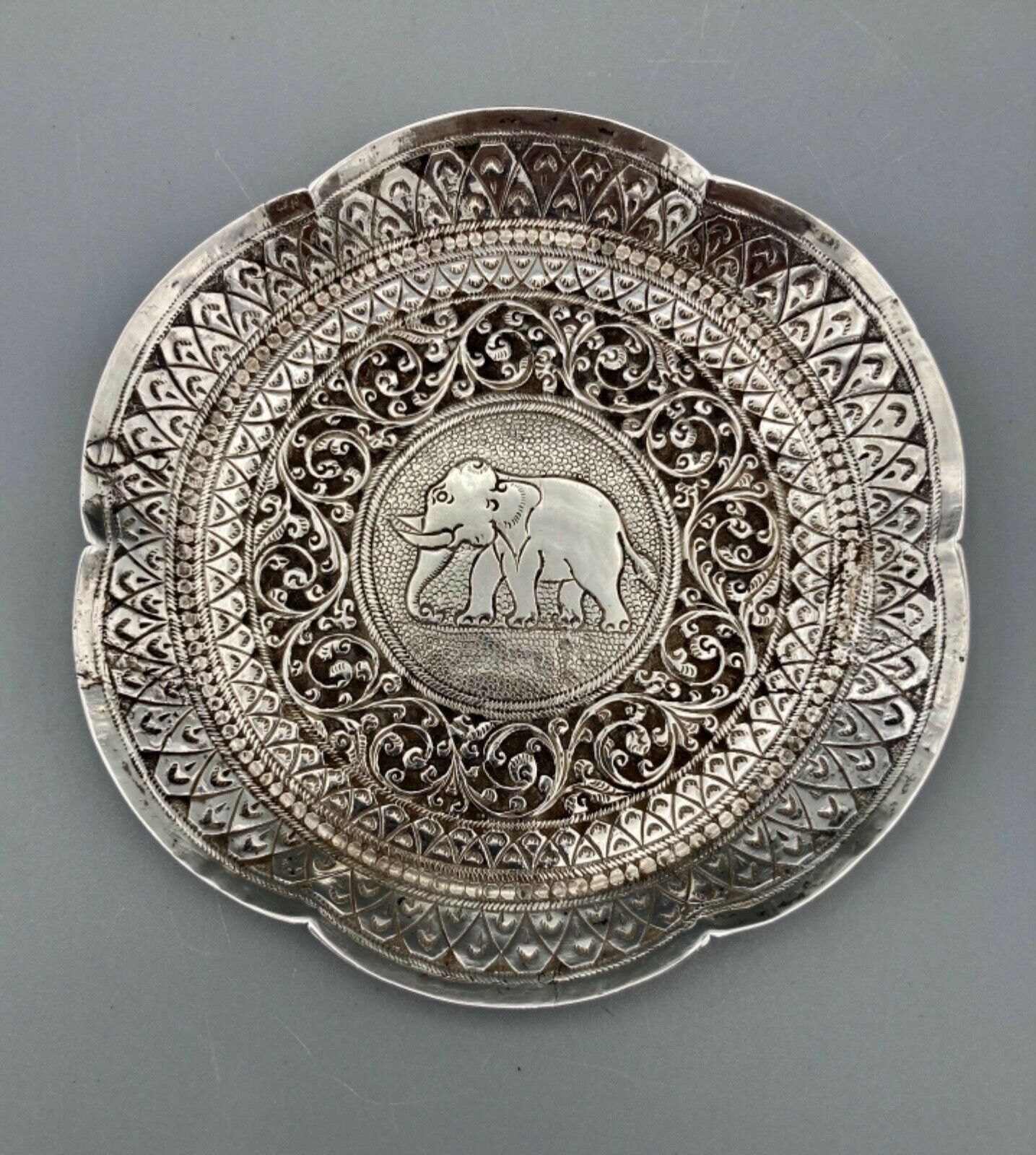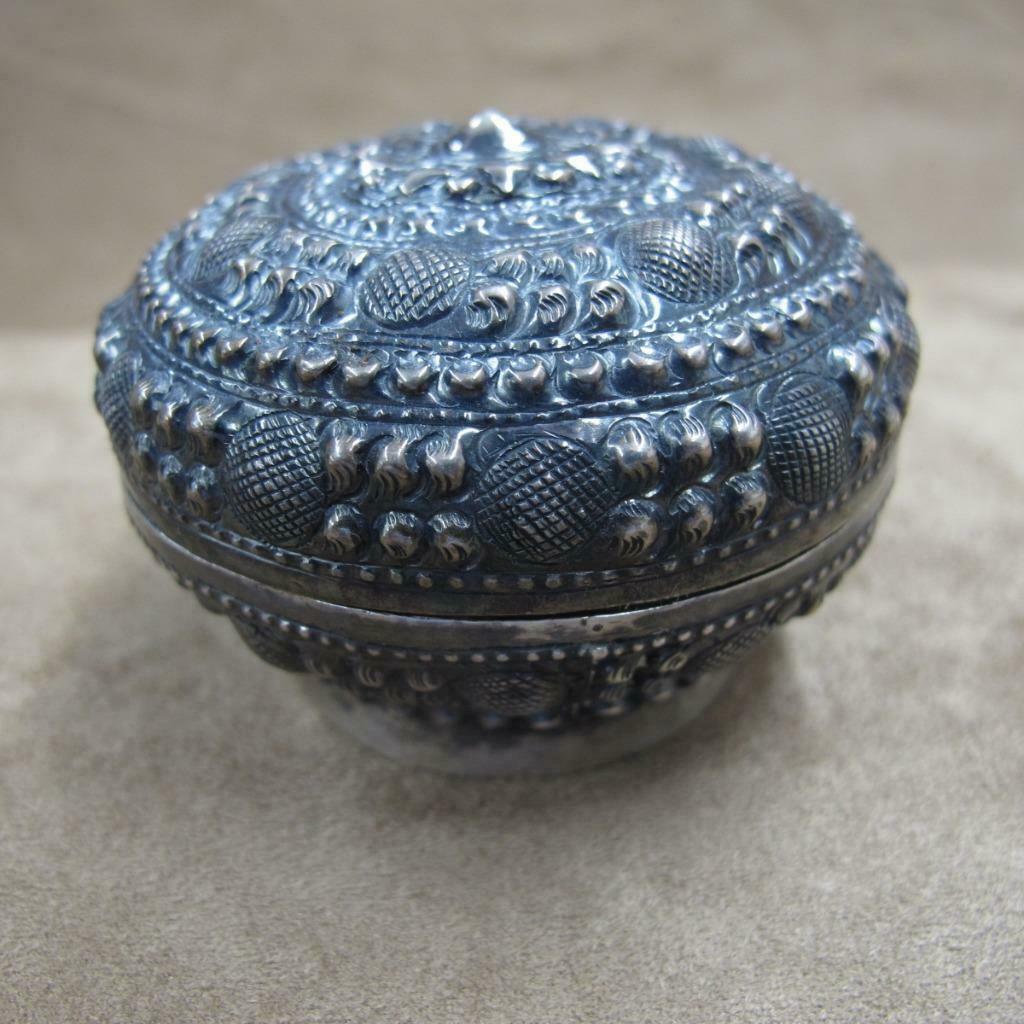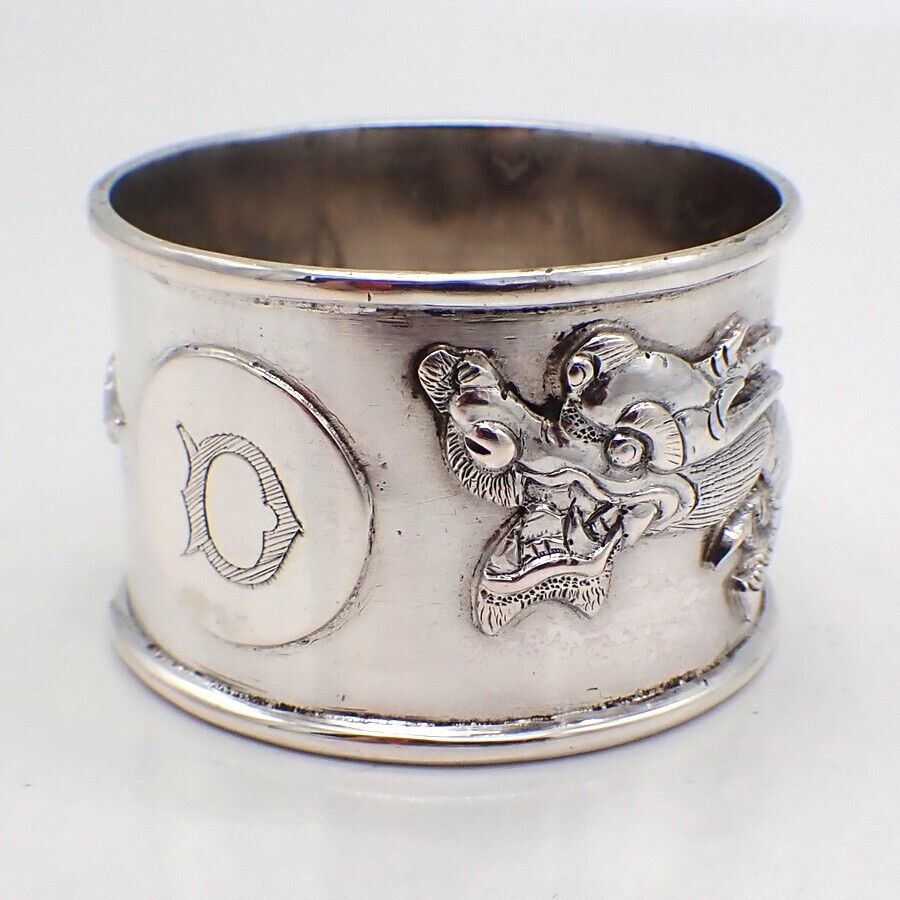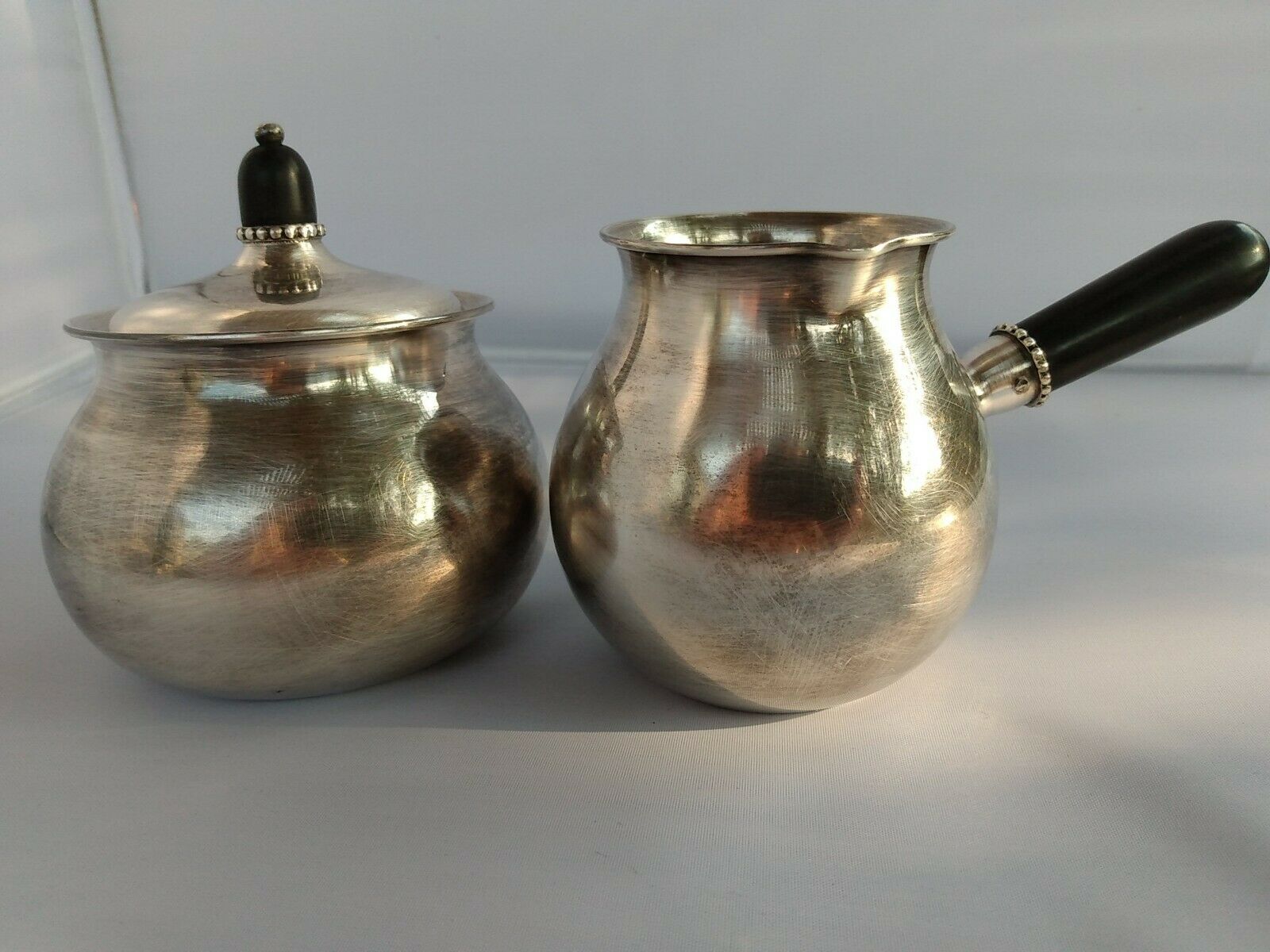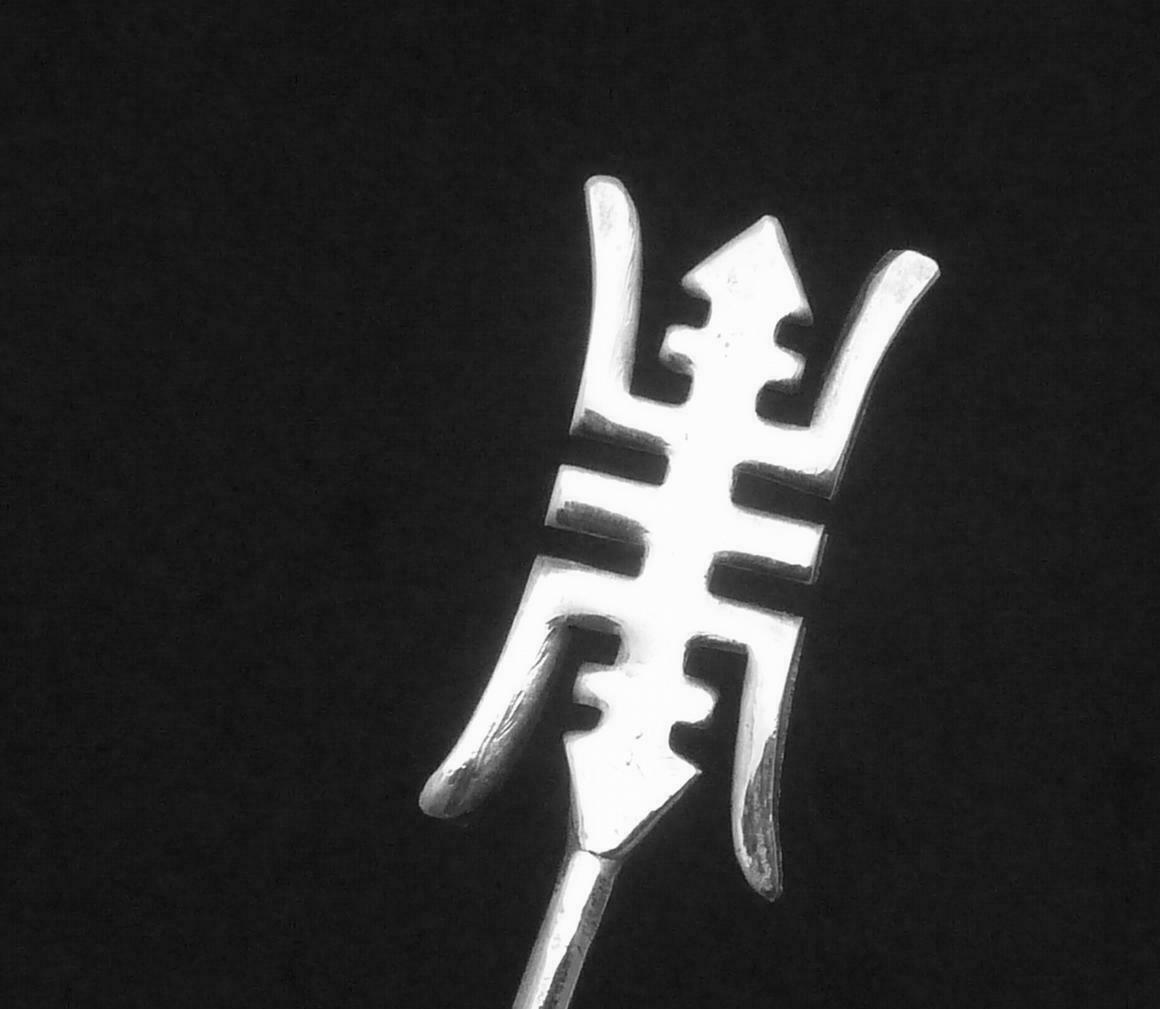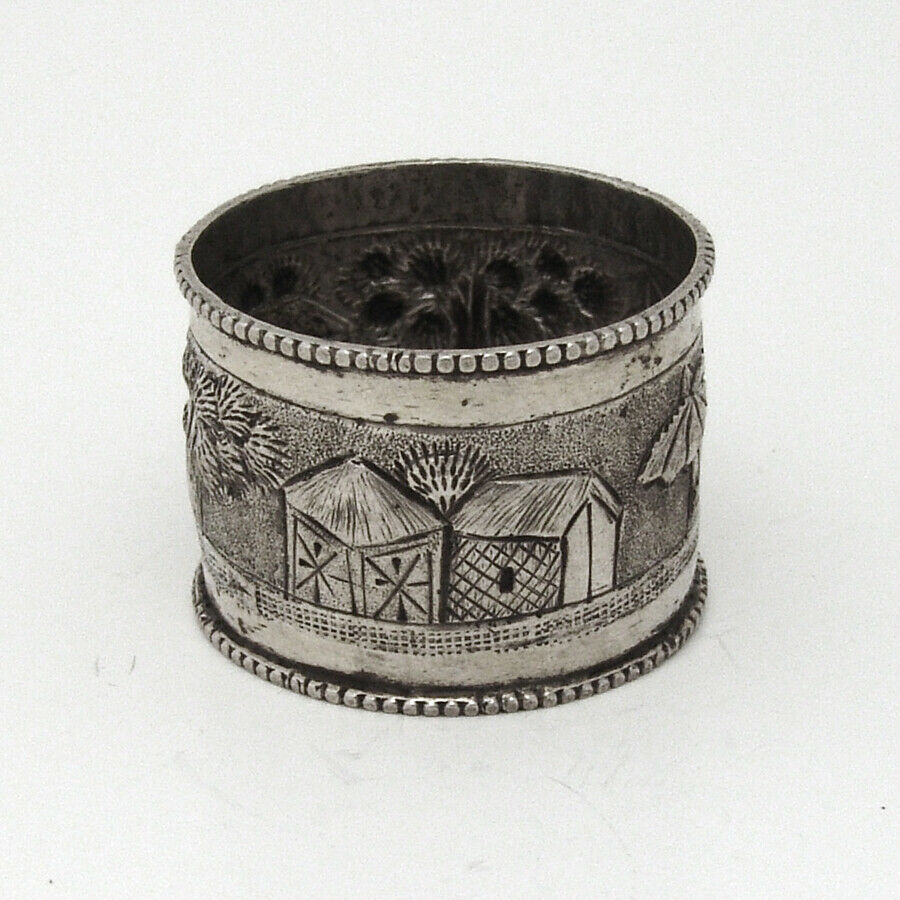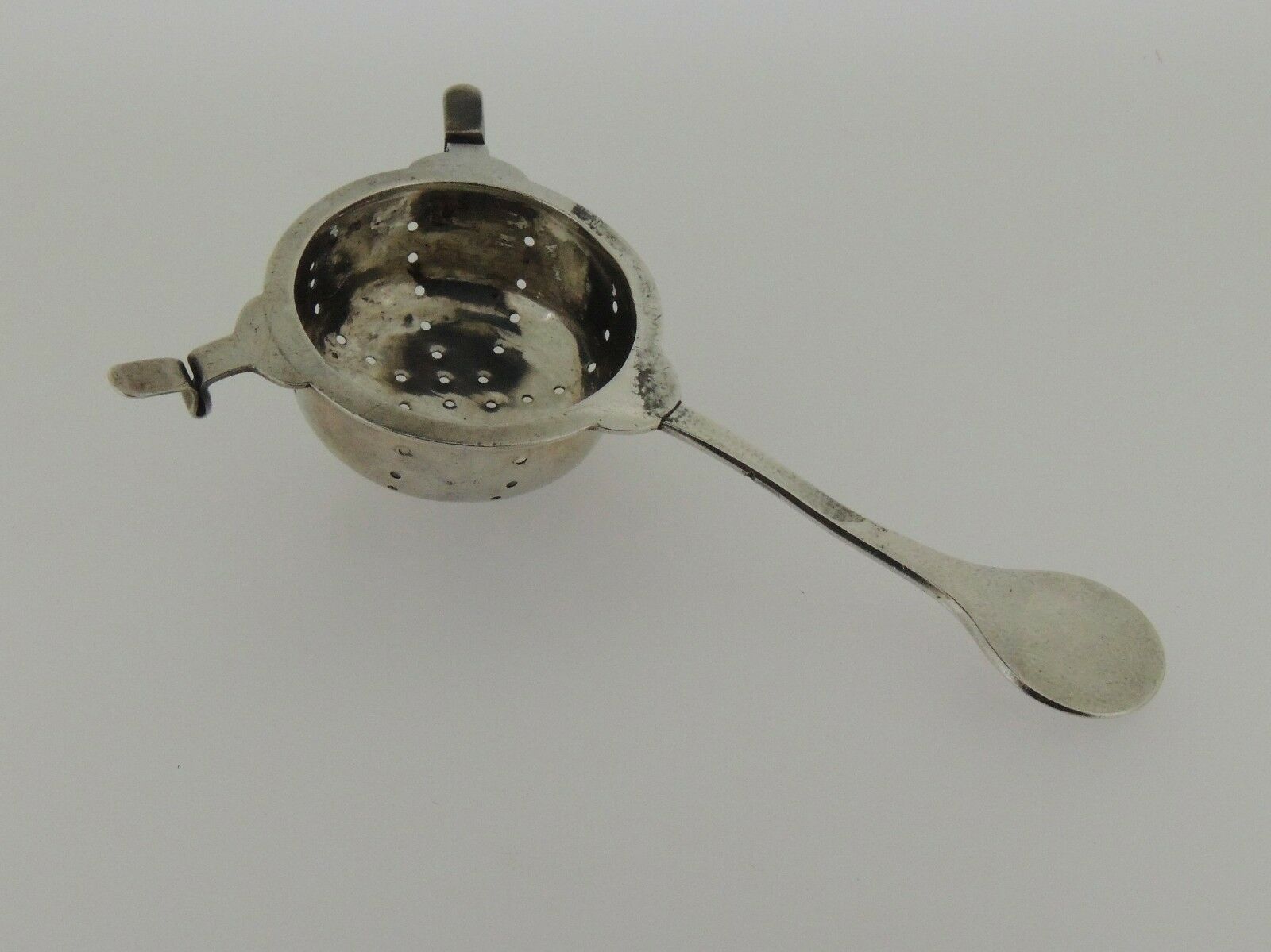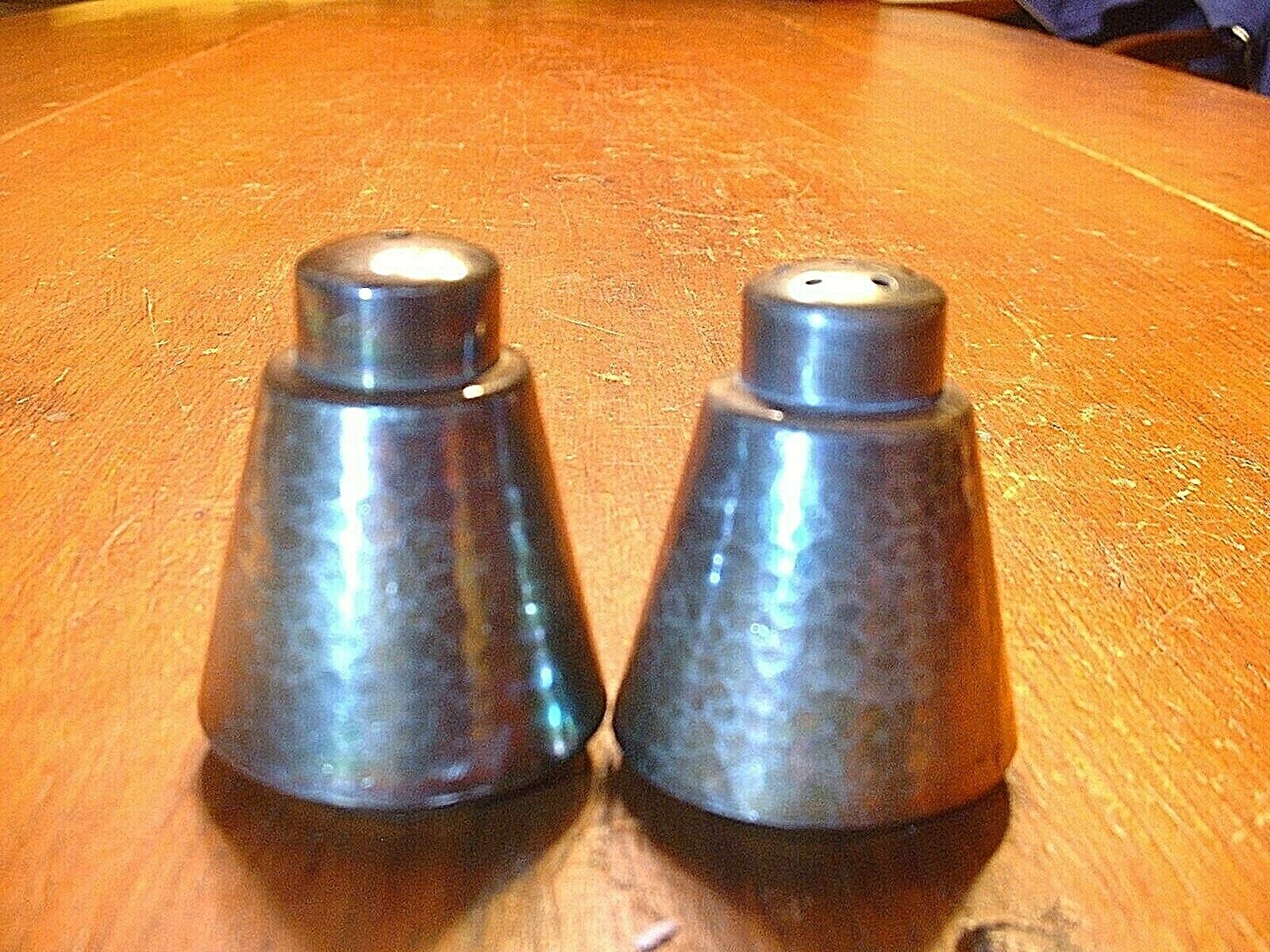-40%
Rare CHONGWOO HONG KONG 19th-early 20th c CHINESE EXPORT NECKLACE
$ 158.4
- Description
- Size Guide
Description
Rare CHONG WOO HONG KONG 19th-early 20th c CHINESE EXPORT NECKLACEBeautiful necklace with characters of well wishes and long life, I asked my friend Ming at the post office if he could read the maker but he couldn't read it so I'm not sure . I purchased this at the estate of Taco Cornelis Proper who
before his retirement, was Managing Director for Kodak (Far East) Ltd. in Hong Kong. I researched the Chong Woo company and got this info off the net
Silver bearing the Chong Woo mark has always been quite scarce, yet more often than not associated with quality pieces,
but it is a silver mark with no particular definitive style. It is a mark that dates back to the early days of the British colony – 1849 to be exact, and it clearly shows there was someone who understood quality of workmanship and style firmly in control.
As with most Chinese retail silversmith’s marks, the name is totally fictitious. The real person behind the mark was one Chiu Yu Tin, one of the earliest Chinese settlers on the island, arriving there at the tender age of 14 to seek his fortune. He came from a poor family in Nanhai, not far from Canton. Interestingly, a significant number of the Canton retail silversmiths hailed from Foshan in Nanhai district. Chiu Yu Tin may well have had some family connection with silversmithing.
What we do know, however, is that by 1849, Chiu Yu Tin had made sufficient money to be able to open his first luxury goods business and by 1853 he appears in the Hong Kong Directory as a purveyor of “Chinese Fancy Goods”. 1849 is also an auspicious date in American history since it is the year gold was first discovered by James Marshall at Sutter’s Sawmill in what is today Sacramento, not far from San Francisco.
Chiu Yu Tin may have been young, but what he was engaging in was a typically Chinese business strategy of the time. He created a network of
liànhǎo
– a chain of traders who were trusted and who usually had either a family connection or came from the same birth town or region. Such trading chains had a complicated ownership structure not dissimilar in many ways to a form of cooperative or mutual society, each individual
keeping their own accounts with the host or main shareholder earning a premium – in this case, Chiu Yu Tin.
